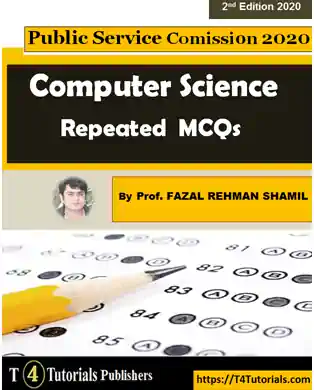29
Score: 0
Attempted: 0/29
Subscribe
Score: 0
Attempted: 0/29
Subscribe
MCQs of Digital Logic Design (DLD)
Introduction to Digital Systems
- Analog vs. Digital signals MCQs
- Binary numbers and arithmetic MCQs
- Logic levels and noise margins MCQs
Boolean Algebra
- Basic logic operations (AND, OR, NOT) MCQ
- Laws and theorems of Boolean algebra MCQ
- De Morgan’s Theorems MCQ
- Canonical forms (Sum of Products, Product of Sums) MCQ
- Simplification techniques (Karnaugh Maps, Quine-McCluskey method) MCQ
Combinational Logic
Logic Gates
Combinational Circuits
- Design and analysis of combinational circuits MCQ
- Multiplexers and Demultiplexers MCQ
- Encoders and Decoders MCQ
- Binary Adders (Half adder, Full adder) MCQ
- Subtractors and Arithmetic Logic Units (ALU) MCQ
- Comparators MCQ in DLD
Sequential Logic
Flip-Flops and Latches
- SR Latch, D Latch MCQ
- Flip-Flops (SR, D, JK, T) MCQ
- Characteristic equations and excitation tables MCQ
- Edge-triggered vs. level-triggered devices MCQ
Counters and Registers
- Synchronous, Asynchronous (ripple), Up/Down counters MCQs
- Shift registers (SIPO, PISO, SISO, PIPO) MCQs
State Machines
Finite State Machines (FSMs)
Memory and Programmable Logic MCQs
Memory Devices
- Read-Only Memory (ROM)
- Random Access Memory (RAM)
- Programmable Logic Devices (PLDs) MCQs
- Field Programmable Gate Arrays (FPGAs) MCQs
More MCQs of Digital Logic Design (DLD)
-
- SET 1: DLD MCQs with answers (dld mcqs with answers)
- SET 2: DLD MCQs (dld basic mcqs)
- SET 3: DLD MCQs (solved mcqs of dld)
- SET 4: DLD MCQs (dld repeated mcqs)
- SET 5: DLD MCQs (dld important mcqs)
- SET 6:DLD MCQs DLD Solved MCQs Answers PDF
MCQs collection of solved and repeated MCQs with answers for the preparation of competitive exams, admission test and job of PPSC, FPSC, UPSC, AP, APPSC, APSC, BPSC, PSC, GOA, GPSC, HPSC, HP, JKPSC, JPSC, KPSC, KERALAPSC, MPPSC, MPSC, MPSCMANIPUR, MPSC, NPSC, OPSC, RPSC, SPSCSKM, TNPSC, TSPSC, TPSC, UPPSC, UKPSC, SPSC, KPPSC, BPSC, AJKPSC ALPSC, NPSC, LPSC, SCPSC, DPSC, DCPSC, PSC, UPSC, WVPSC, PSCW, and WPSC.
